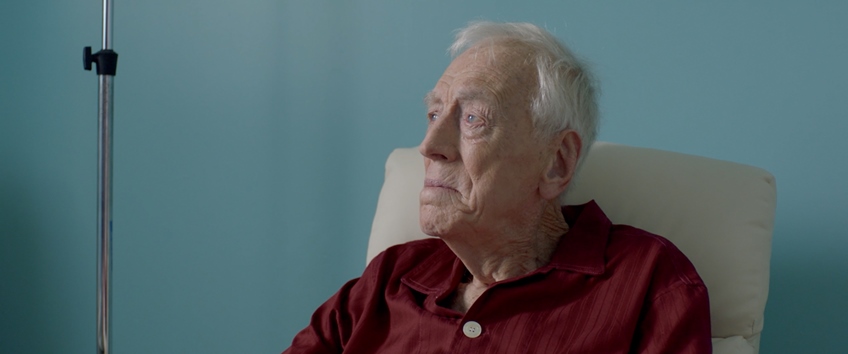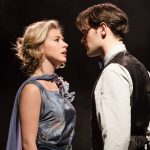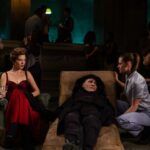Joyce Glasser reviews Echoes of the Past (February 21, 2022) Cert 15, 95 mins. On Digital Platforms from Reel 2 Reel Films.
Max Von Sydow, the Swedish-French actor who died in 2020 age 90, is best remembered for his brilliant collaborations with Ingmar Bergman (The Seventh Seal, The Virgin Spring) and for his mainstream roles including William Friedkin’s The Exorcist, Wood Allen’s Hannah and Her Sisters, and JJ Abrams’ Star Wars: The Force Awakens. But his last role is as fictional Greek writer, Nikolaos Andreou, the last eyewitness to the very real massacre of Kalayryta on December 13, 1943, in the Greek film, Echoes of the Past, on digital release. He may not have bowed out with a bang, but von Sydow’s performance is the only reason to see the film.
The film is “inspired by true events”, but the only true event is the massacre, as told in flashback through the eyes of writer Nikolaos Andreou (Von Sydow) to a highflying German lawyer Caroline Martin (Astrid Roos). Martin is representing the German Government against a multi-billion dollar claim for war reparations.
There is an uncomfortable scene in Berlin when Martin’s client, a cynical minister, complains: ‘If the Greeks win, nothing is going to stop the Polish, Belgium, even the Russians demanding their own pound of flesh.’ They debate whether the Two Plus Four Treaty of 1990 put an end to the matter of these ongoing claims, but Martin has to break the bad news that the matter is open to legal interpretation.
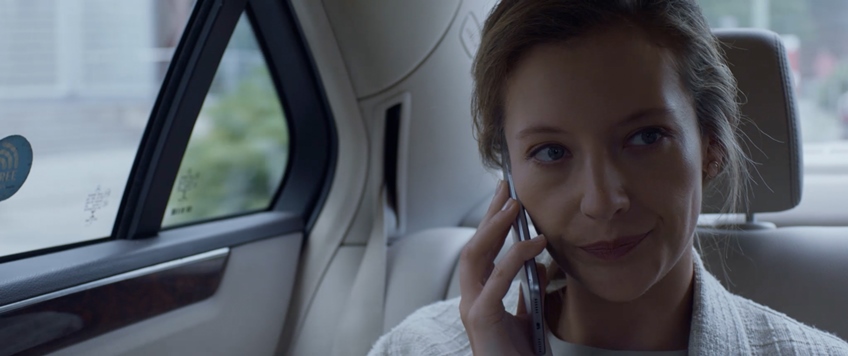
It is not only awkward that this discussion is in strangely accented English, when all present are German, but it is strange that this discussion is taking place in the present day, as we learn from a caption. With Peter Eisenmann’s 2005 Holocaust Memorial, a 19,000 square meter monument on prime real estate between East and West Berlin, it is pretty clear that the Germans have made a highly visible admission of guilt.
A PR adviser looking for a spin on what could be a “PR disaster” for Germany, suggests that Martin try to dig up any mitigating circumstances she can find to challenge the Greek claim: “anything that might shed a different light on the tragedy”. So Martin tells her disappointed fiancée that she’s off to Athens to investigate the case that will make her career.
To give you an idea of the calibre of the writing, Martin says: ‘I win this one and the future is mine.’ In fairness to her callousness, once she hears Andreou’s testimony, she realises her little career must take a back seat to her moral compass. Her decision at the end of the film might be overkill, but the film’s “journey” is Martin’s.
Director Nicholas Dimitropoulos does a good job reconstructing the tension in young Andreou’s middle-class family when two German officers move into their home, especially when we learn that Andreou’s father is a member of the Greek Resistance. When the Resistance kill 78 Nazi soldiers, the family realise there will be retaliation, but are helpless to escape. Dimitropoulos also stages the massacre scenes with impressive realism.
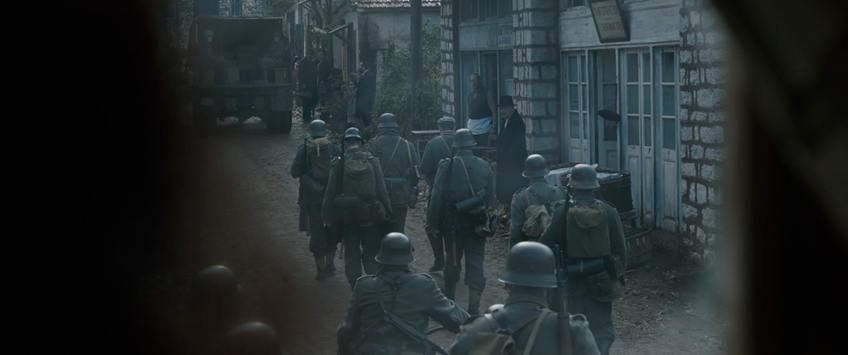
The women and young children are herded into the school building which is locked and set on fire. A Viennese soldier unlocks the door allowing them (including Andreou) to escape. This bit may be true.
It appears that Martin has found her spin – a kind Viennese soldier who freed the women and children. She goes to Austria to visit the heroic soldier’s widow (played by Alice Krige, who looks younger than Andreou although she should be at least ten years older). Fortunately for Martin, who travels without an interpreter despite the size of the Greek claim, the widow speaks English, as does Andreou.
Martin also visits the Museum of the Kalayryta Holocaust, which does exist, and lends authenticity and pathos to the film. Curiously, however, Dimitropoulos has old Andreou leave a copy of his book, Echoes of the Past, on a bench, dedicated to Caroline Martin.
If Andreou is the historian of the massacre, whose two books (that we see) are so famous that they’ve been translated into English, one might well ask why Martin hadn’t read them – before going to Athens? You might also wonder why Andreou would leave the book in the Memorial rather than giving it to her at his home after the interview.
So, while half the film is the framing of the massacre, the bits that stick in the memory are the reconstructions of the massacre and von Sydow’s dignified, aggrieved interview. When the camera looks into his face, we feel all the pain as if it were happening today. Which it is, only somewhere else.

